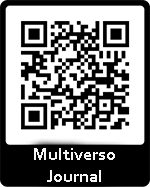Of the intelligentsia and political commitment to a civilist status
DOI:
https://doi.org/10.46502/issn.2792-3681/2022.3.2Keywords:
political position, theoretical proposal, intellectual community, ideological synergies.Abstract
This text was prepared as a conscious manifestation of the need to assume, personally, a political position in the face of the reality of which one is a historical subject and an active observer.
For this reason, it is possible, from the force of knowledge, the conviction of an attained intellectual maturity and a permanent social sensitivity, to share this meticulous reflection and personal academic exercise in a purposeful way.
The main objective is to bring the thesis closer to the community of intellectuals and social scientists to experience ideological and conceptual synergies that caress the utopia of a different world. As a methodological approach of documentary foundation, the essay supports its verification in the contributions of respected theorists and authors of the social sciences, as a point of support to insist with a theoretical proposal that, in various nuances, has been in the voices of characters from epoch. In the understanding of characterizing the present work within the framework of a documentary inquiry, product of the reading of historical events, the results are subject to scrutiny by the intellectual community, and hopefully be subject to evaluation. Finally, given the conditions of apocalyptic signs that society faces today, the slogan is a more humanized world.
References
Boron, A. (enero de 12 de 2005). Las ciencias sociales en la era neoliberal: entre la academia y el pensamiento crítico. Obtenido de CLACSO: http://biblioteca.clacso.edu.ar/clacso/se/20100610091219/alas05.pdf
But’ko, L., Makogon, B., Nifanov, A., Poluhin, O., & Tychinin, S. (2019). La formalización del territorio en las constituciones de los países CEI. Revista Científica Del Amazonas, 2(3), 47-55. Recuperado a partir de https://revistadelamazonas.info/index.php/amazonas/article/view/17
Echeverri, A., y Zuluaga, O. (2015). Campo intectual y Campo Pedagógico de la Educación. Revista Educación y Ciudad, (04), 12-23.
El modelode la ingración regional asociado a las reformas neoliberales. (2018). En S. F. Consuelo, América Latina: una integración regional fragmentada y sin rumbo (págs. 14-42). Quito: CLACSO.
Gramsci, A. (24 de diciembre de 1924). Los intelectuales y la organización de la cultura. Obtenido de CEME Centro de estudios Miguel Enriquez: http://www.archivochile.com/Ideas_Autores/gramscia/d/gramscide0008.pdf
Horkheimer, M. y. (1998). Dialéctica de la Ilustración. Fragmentos filosóficos. Valladolid: Editorial Trotta.
Martínez, A. (2003). La enseñanza como posibilidad de pensamiento. En O. L. Zuluaga, Pedagogía y Epistemología (págs. 185-202). Bogotá: Cooperativa editorial Magisterio.
Mclaaren, P. (1994). Pedagogía crítica y cultura depredadora. Políticas de oposición en la era postmoderna. Barcelona: Editorial Paidós.
Mockus Sivickas, A. (16 de octubre de 1987). Presupuestos filosóficos y epistemológicos del privilegio del currículo. Ciclo planteamientos y reflexiones alrededor del currículo en la educación superior. Obtenido de Biblat: https://biblat.unam.mx/es/revista/serie-memorias-de-eventos-cientificos-colombianos/articulo/presupuestos-filosoficos-y-epistemologicos-del-privilegio-del-curriculo-ciclo-planteamientos-y-reflexiones-alrededor-del-curriculo-en-la-educacion-superior-fac-in
Ornelas, J. (2009). Neoliberalismo y capitalismo académico. En P. Gentili, Políticas de privatización, espacio público y educación en América Latina (págs. 83-119). Buenos Aires: CLACSO.
Yuchak, M. (2010). Lo intelectual y los intelectuales. Acerca del concepto de intelectual en Gramsci. Herramienta Revista de debate y crítica marxista, 20-32.
Published
How to Cite
Issue
Section
License
Copyright (c) 2022 Álvaro Lobo

This work is licensed under a Creative Commons Attribution 4.0 International License.
The authors who publish in this journal agree to the following terms:
The authors retain copyright and guarantee the journal the right to be the first publication where the article is presented, which is published under a Creative Commons Attribution License, which allows others to share the work prior to acknowledgment of the authorship of the article. work and initial publication in this journal.
Authors may separately enter into additional agreements for non-exclusive distribution of the version of the work published in the journal (for example, placing it in an institutional repository or publishing it in a book), with an acknowledgment of its initial publication in this journal.



















